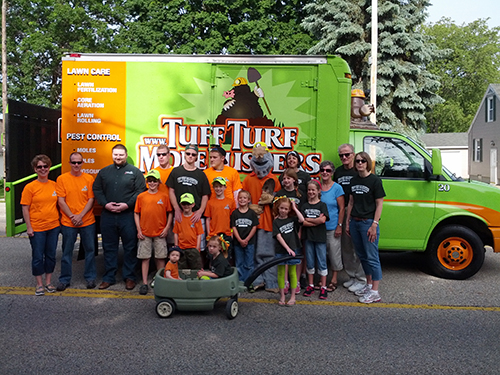Any predictions on how technology will influence the management of landscapes in the next decade?

Landscape Professionals
Richard Bare
Arbor-Nomics Turf, Norcross, Ga.
“At the end of the decade we may have self driving trucks, mowers, spreaders, sprayers, etc. Everyone will have gone paperless and battery-driven unless there’s a giant failure of the power grid knocking us into the greatest Depression of all time because everything will run on electricity and computers.”
Jerry McKay
McKay Landscape Lighting, Omaha, Neb.
“As people continue to use technology to make their lives easier, it will be our job to make sure the smart home technology actually achieves that for them. It will increase the professionalism of the industry and allow us to really become consultants that help them manage their outdoor experience.”
Industry Consultants
Dan Gordon
Turfbooks, Newton, N.J.
“The proliferation of the computer age, more specifically mobile computing, has and will change the way all commerce is done. As the millennials come of age, be prepared. They don’t want face-to-face interaction; they want fast, cost-effective goods and services purchased on their mobile devices. Land care professionals must gear up or be left behind!”
Kevin Kehoe
3PG Consulting, Laguna, Calif.
“I predict water usage technology and portals where customers can view quality issues, bids, billing, statement, schedules etc.”
Jeffrey Scott
Jeffrey Scott Inc!, Trumbull, Conn.
“Technology is completely transforming the landscape industry: automated technologies are replacing workers, paper, administration, and even the buying and selling process. Companies that do not embrace technology will not remain viable.”
Jody Shilan
FromDesign2Build.com, Upper Saddle River, N.J.
“With the labor issues we’re having, mowers will be self guided, much like the Roomba vacuum cleaner. Smart irrigation systems will get smarter and more popular as water scarcity issues and population growth continues. Young people will return to cities and urban areas as they flee suburbia and the sprawling green lawns and jumbo mortgages of their parents. This means smaller landscapes to design, build and maintain with a continued growth in kitchen or edible gardens.”


